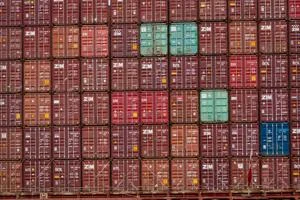President Donald Trump reached a trade deal with the Philippines on Tuesday that will see imports from the Southeast Asian country face a 19% tariff while U.S. imports will be tariff-free.
Trump announced the deal on Truth Social on Tuesday after a visit with President of the Republic of the Philippines Ferdinand R. Marcos Jr. in the Oval Office. Trump has announced other trade deals in the same manner in Truth Social posts with few details on the breadth and scope of the pacts.
“We concluded our Trade Deal, whereby The Philippines is going OPEN MARKET with the United States, and ZERO Tariffs,” Trump wrote on his social media site. “The Philippines will pay a 19% Tariff.”
The U.S. president said the two countries will also work together on military matters.
“It was a Great Honor to be with the President,” Trump wrote of Marcos. “He is Highly Respected in his Country, as he should be. He is also a very good, and tough, negotiator. We extend our warmest regards to the wonderful people of The Philippines!”
U.S. trade goods with the Philippines totaled an estimated $23.5 billion in 2024. U.S. goods exports to Philippines in 2024 were $9.3 billion,. U.S. goods imports from Philippines totaled $14.2 billion in 2024. The U.S. goods trade deficit with Philippines was $4.9 billion in 2024, according to the Office of the U.S. Trade Representative. The Philippines are home to about 116 million people.
Marcos was elected president in 2022 with the largest popular vote in a presidential election since his father’s ouster in 1986. Ferdinand Marcos was forced into exile after 21 years of authoritarian rule by the “people power” movement in Manila. He was later convicted of graft and the family has been dogged by allegations of corruption ever since.
Trump announced a similar deal with Indonesia last week. Trump said Indonesia would face a 19% tariff on all goods exported to the U.S. while the U.S. would pay nothing for access to the Indonesian market. Indonesia is an archipelago in Southeast Asia with more than 280 million people.
In June, an appeals court ruled Trump’s “Liberation Day” tariffs could remain in place while a legal challenge over his authority to impose import taxes continues.
That came after the administration appealed when a three-judge panel of the U.S. Court of International Trade unanimously ruled in May that Congress did not give the president tariff authority under the International Emergency Economic Powers Act of 1977. The appeals court ruling means Trump can continue collecting the taxes while the legal challenge moves ahead.
Economists, businesses and some publicly traded companies have warned that tariffs could raise prices on a wide range of consumer products.
Trump has said he wants to use tariffs to restore manufacturing jobs lost to lower-wage countries in decades past, shift the tax burden away from U.S. families, and pay down the national debt.
A tariff is a tax on imported goods paid by the person or company that imports the goods. The importer can absorb the cost of the tariffs or try to pass the cost on to consumers through higher prices.






